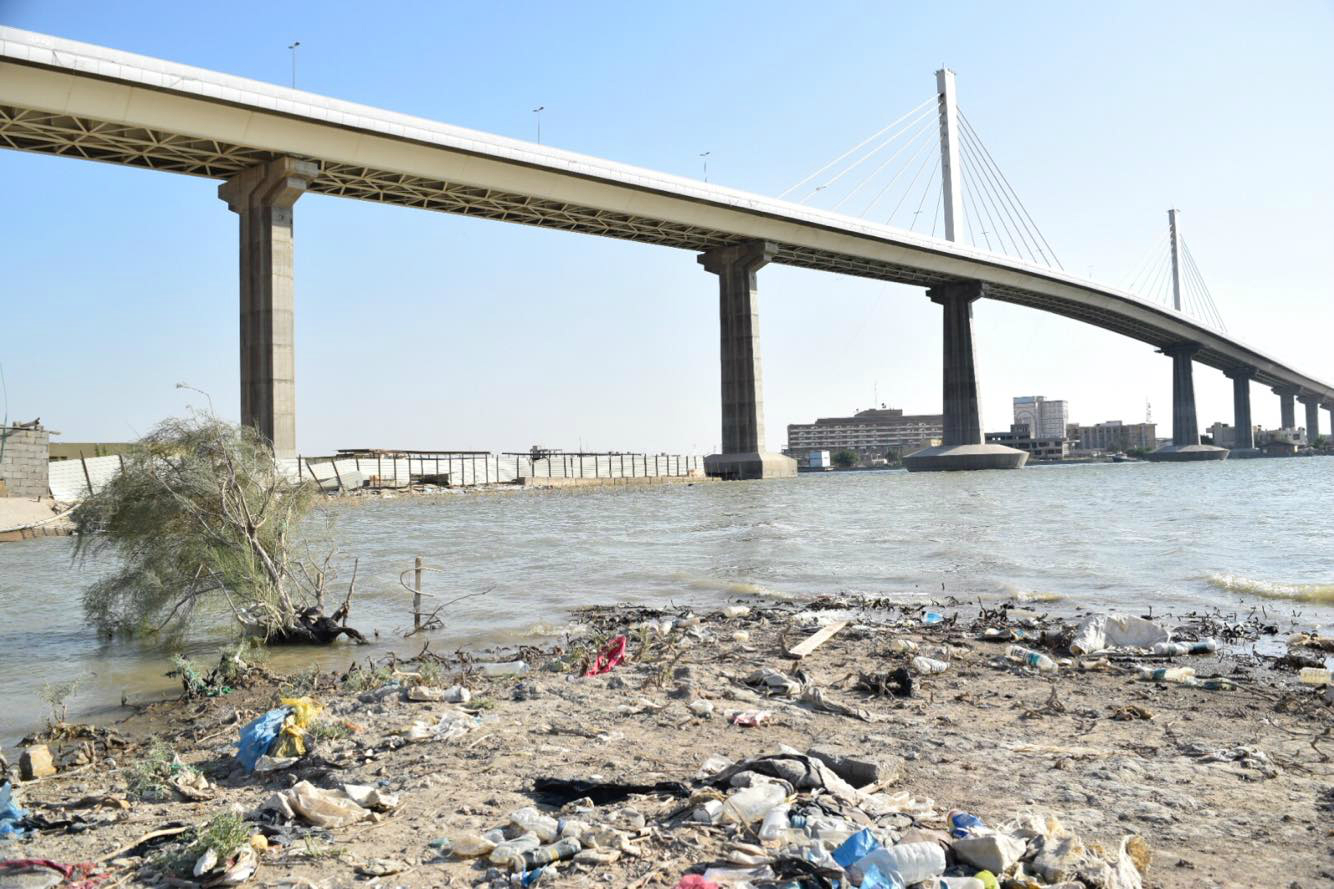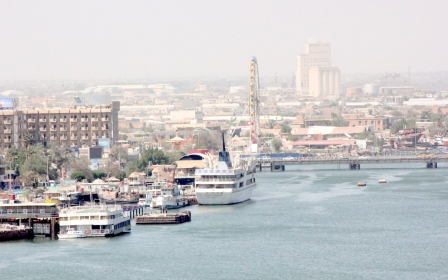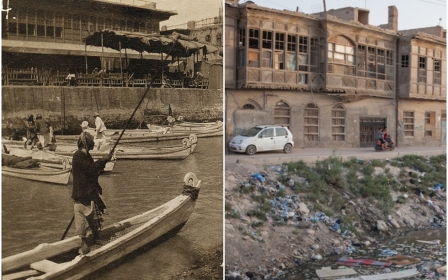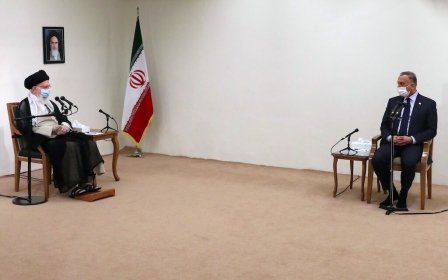Little to catch for Basra's fishermen as stocks in Shatt al-Arab dwindle
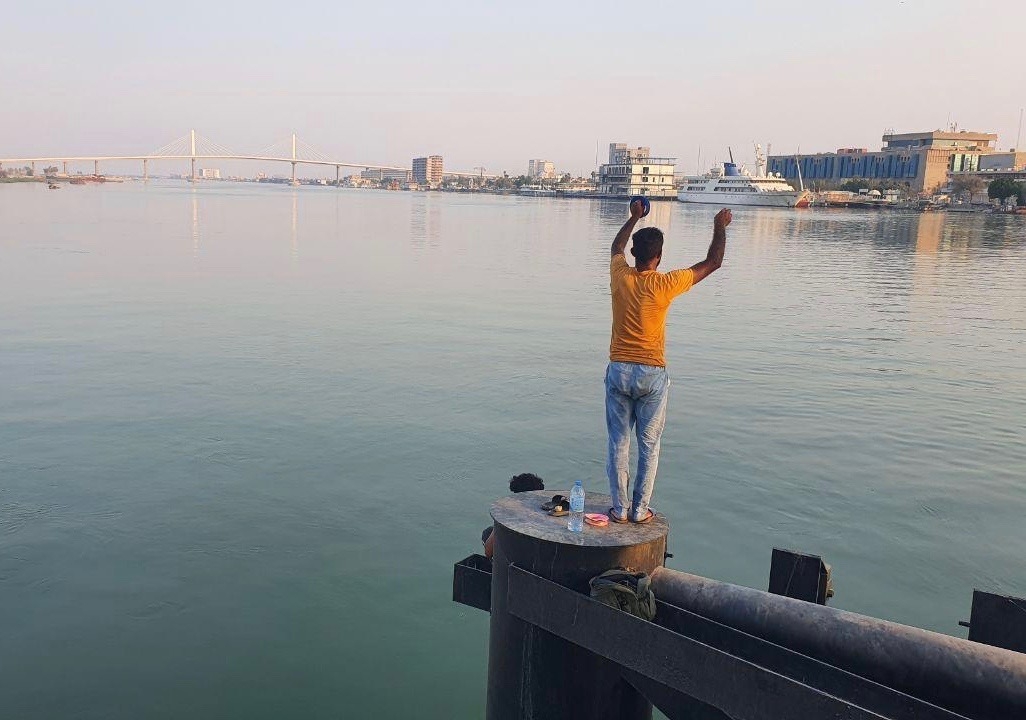
Every day before the sun comes up, amateur fisherman Abu Zainab, 73, rides to the river on his bicycle, once a common means of transportation in Iraq's southern city of Basra.
With his fishing line, hooks and organic baits, Zainab stands in front of Shatt al-Arab river and throws a line across the freshwater with a skill practiced since childhood.
“Before heading to Shatt al-Arab, I went to the local market to shop for vegetables and other products that my wife needs, but I did not buy fish," Zainab said, adding that he and his family prefer eating the fish he gets from the river himself.
“They are fresh and taste good. Moreover, fishing is my favourite sport - one that I have been practising for decades."
This passion for fishing was born a long, long time ago, in what the 73-year old now thinks of as the golden period of the Shatt Al-Arab - a confluence of the Tigris and Euphrates which runs through the centre of Basra - when its branches were rich with a variety of fish species.
New MEE newsletter: Jerusalem Dispatch
Sign up to get the latest insights and analysis on Israel-Palestine, alongside Turkey Unpacked and other MEE newsletters
“During that time, wherever I threw my line I would catch one within a few minutes. But today, I must choose a certain spot and wait a long time with little chance of catching a fish,” he said.
“Currently, the river’s fish stocks are few in number and small in size.”
Despite Zainab's use of different fishing techniques, be it line fishing or rod fishing, he has no luck catching today.
Venice of the east
Basra was once called the Venice of the East due to the numerous canals running through the city.
Now, the Shatt al-Arab river, Basra’s main and only source of fresh water, is facing many challenges, including pollution, salinity and the residuals of war.
'Twenty-six fish species have been in danger of extinction due to climate change and global warming'
- Alaa al-Badran, expert
In 2019, Human Rights Watch released a report saying that Basra’s waterways are being contaminated by human and animal sewage, garbage, run-off of soil contaminated with agricultural fertilisers, oil residues and toxic waste - including munitions - left behind by years of war.
Additional sources of pollution, according to experts, are domestic wastewater and medical waste from Al-Sadr Teaching Hospital pouring directly into the river.
“Some fishermen intentionally throw poison into Shatt al-Arab to make fish float up to the surface and easily catch them," Zainab complained.
"Technically it works, but it is wrongly used and kills all kinds of fish, regardless of size. I fish only one in a good size, and return the small ones to the river to let them grow.”
Fishing was our ancestors' job
The Tigris and Euphrates flow down from Turkey’s eastern highlands, while the former is fed by five major tributaries in Iran. Both countries have built dams that have caused the water flow in Iraq to decline by 40 percent.
In late 2018, more than 100,000 Iraqis were hospitalised as a result of water-related illnesses. This, in Mesopotamia, the "land between the two rivers".
Sitting in front of Shatt al-Arab river and wearing a hat for protection against the 52C heat, another amateur fisherman, Abdel-Sattar Abdel-Hussein Mohammed, uses the rod and line fishing technique, with a hook fed by natural or artificial baits.
Mohammed, 64, goes down to the river twice a day to fish and to get away from the routine of his home.
“There’s no clean drinking water, no electricity, where else should I go?”, he said, adding that he had come at 2am, and would return home at 9am.
“Fishing was our ancestors’ job, but today it has become a way to enjoy ourselves, no more, no less."
Mohammed told MEE that he first used to come to Shatt al-Arab with his father for fishing when he was nine years old.
“I would love to diversify the lunch table with the fish I catch, and I spent a few hours and a lot of patience before doing so,” he said. “Per average, I catch eight to 10 fish each time I go to the river.”
Seven fish a day
Many fishermen blame the government for not cleaning the deep bottom layer of the Shatt al-Arab, blocking many species of fish from entering the river.
Alaa al-Badran, a water and agriculture expert, said salinity and pollution are at the heart of the decline of fish schools in Shatt al-Arab, in addition to oil smuggled through the river, which has made the water biodiversity even more fragile.
“Twenty-six fish species have been in danger of extinction due to climate change and global warming,” Badran told MEE.
“Shatt Al-Arab’s temperature exceeds 52C. All these factors, together with products and factory wastes, have led to the diminishing of the river’s depth, leaving no space for fish to go during the summer season."
Badran also said that tens of fish species, including shad, common carp and barbus, have disappeared from the river, pushing people to sell imported fish, which has flooded the local markets in Basra.
Ali Hassan, 35, rides his bicycle to his usual spot with his friends to spend their time fishing, an activity he describes as nice and useful.
Locating a certain place on al-Tanouma bridge to throw his fishing line, Hassan said he prefers this spot because it has access to the middle of the river, where fish are more available than on the riverbank.
As he spoke, Hassan, who prepares a special handmade bait, caught a carp, his seventh for the day. As per old tradition, Iraqis, particularly in Basra, like to eat fish on Fridays.
“I cannot describe what I feel when I catch this nice fish… I will invite my friends for lunch to eat them on Friday,” he said.
Hassan and the other young men he fishes with have called on the local and central government to follow other countries in setting up a hangout for fishermen, given the often long time they have to fish for.
“We are not like al-Faw fishermen who catch sea fish in river water. We fight to get even one fish," Hassan said, in reference to a traditional fishing port community in the Basra region.
“Catching seven fish on this day is better than fishing nothing.”
Middle East Eye delivers independent and unrivalled coverage and analysis of the Middle East, North Africa and beyond. To learn more about republishing this content and the associated fees, please fill out this form. More about MEE can be found here.



